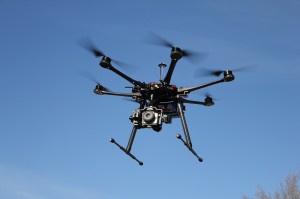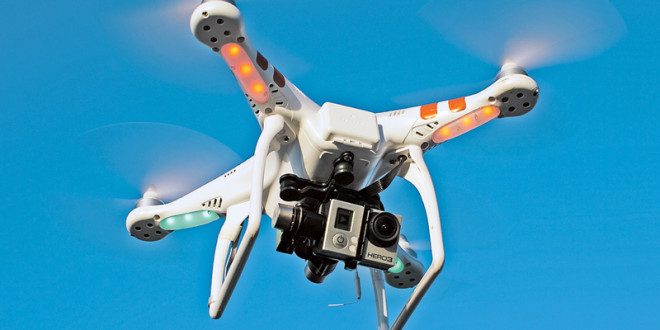The Davis Aviation Center is looking to launch an experiential learning program surrounding unmanned aerial systems (UAS). Simultaneous interest by three aviation students sparked the interest in order for Jacksonville University to be a place to conduct undergraduate research, with possibilities of developing courses related to this innovative technology. The advancement of technology in the aerospace industry has been linked to these systems mainly in the defense sector, but has opened the door to possible commercial operations.
 Unmanned Aerial Vehicles (UAV) contain GPS guidance systems, with the ability to triangulate their position much like many mobile devices can today. The UAV research space is a “maturing industry with incredible growth potential,” according to Assistant Professor of Aeronautics Ross Stephenson. Since the introduction of the project, an additional three aviation students have expressed interest in the same topic; thus the idea of creating a specialized research project came to fruition.
Unmanned Aerial Vehicles (UAV) contain GPS guidance systems, with the ability to triangulate their position much like many mobile devices can today. The UAV research space is a “maturing industry with incredible growth potential,” according to Assistant Professor of Aeronautics Ross Stephenson. Since the introduction of the project, an additional three aviation students have expressed interest in the same topic; thus the idea of creating a specialized research project came to fruition.
Currently, the Davis Aviation Center is pursuing a grant to purchase two UAVs for experimental purposes, which could potentially lead to future courses and tracks for Jacksonville University aviation students. C-2 Aeronautics LLC of Ormond Beach was on campus for Entrepreneurship Day recently to demonstrate the UAV technology.Two students interested in this research of UAS are completing an independent study course this fall, while another student is utilizing this research for a University Honors project.
UAVs have been mentioned by commercial entities like Amazon.com and other corporations as a way to individually deliver packages to consumers. In addition to retail outlets, research has been completed in a number of other commercial applications, including but not limited to: weather forecasting, agriculture and search and rescue, as well as accident investigation. It is predicted that different hubs across the world would be set up to control these UAVs in order to complete tasks in various industries.
“We are positioning ourselves to educate our students in the field of aeronautics as it continues to evolve,” said Capt. Matt Tuohy, new director of aeronautics. “By aligning research with the industry, it will enhance a student’s knowledge in various areas of prospective employment.”
Pending funding, the students currently researching UAS will conduct an experiment that tests human factor research in terms of piloting UAVs. Participants will have a chance to navigate these UAVs from the ground using a computer screen, and also while wearing normal vision goggles, simulating line of sight in an aircraft. The hope is to introduce an obstruction and measure the pilots’ reaction time to it to further understand the ease of use by common citizens.
In order to fly outside, Jacksonville University will need to apply for a certificate of authorization from the Federal Aviation Association (FAA), which is only granted to public institutions. Therefore, this experiment will need to be conducted indoors, with Swisher Gymnasium as an ideal spot to perform the experiment. The hypothesis that will be tested is that one’s reaction time will be faster with the goggles than seeing using the screen.
“It will be interesting to see whether there is a significant statistical difference between seeing via a screen and utilizing the goggles in the pilots’ reaction time,” Stephenson said.
Currently, the FAA has six locations, called centers of excellence which are dedication to exploring the design and operations of these UAVs in public airspace.
To learn more about the aeronautics program at Jacksonville University, visit www.ju.edu/aviation
 Wave Magazine Online Jacksonville University News Hub
Wave Magazine Online Jacksonville University News Hub
